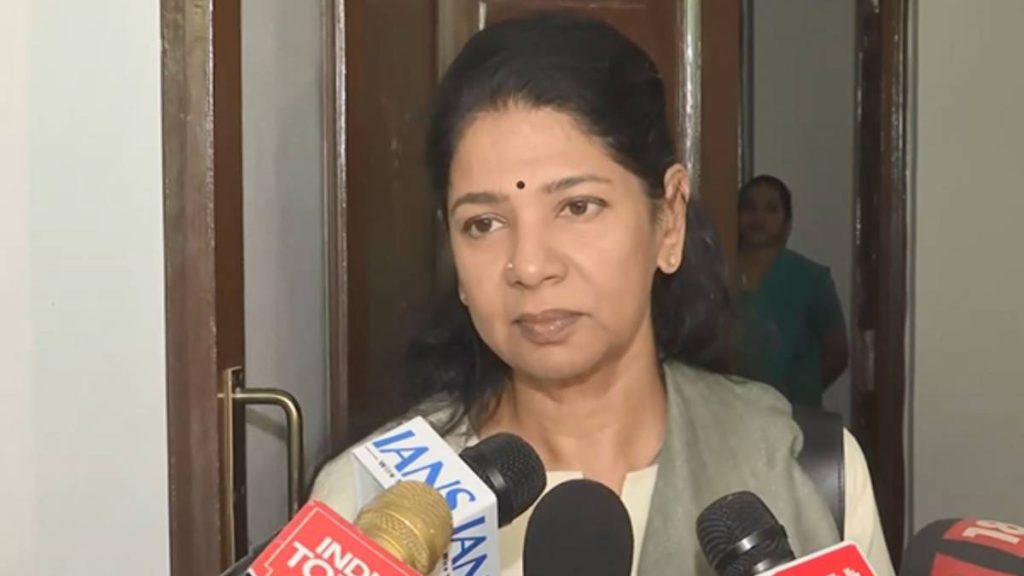DMK MP Kanimozhi, leading an Indian all-party parliamentary delegation as part of Operation Sindoor, underscored the importance of India’s strategic engagement with Russia amid a renewed global push to isolate terrorism and its sponsors.
Speaking to ANI from Moscow, Kanimozhi said the Government of India has dispatched MPs from across party lines to various countries to explain India’s counterterrorism stance following the April 22 Pahalgam terror attack, which claimed 26 lives.
“Russia has always been a strategic partner, and we’ve worked together on diplomatic and trade issues. At this crucial moment, it’s important to reach out to Russia as we face repeated terror attacks,” Kanimozhi stated.
As part of the delegation’s diplomatic agenda in Russia, meetings are scheduled with top officials including Andre Denison, First Deputy Chair of the Committee on International Affairs, and Leonid Slutsky, Chair of the State Duma Committee. They will also engage with Russia’s Deputy Foreign Minister, think tanks, media, and former Prime Minister Mikhail Fradkov.
The visit to Russia, Greece, Latvia, Slovenia, and Spain reflects a broader effort to mobilize international opinion and unify support around India’s message of zero tolerance for terrorism.
Echoing this message, Samajwadi Party leader Rajeev Rai, also part of the delegation, called Pakistan a threat to global security:
“There’s hardly a major terrorist incident in the world that doesn’t trace back to Pakistan. It’s time the international community isolates it.”
Rai emphasized Russia’s historical friendship with India and its alignment on issues of global security and terrorism.
The all-party delegation represents India’s unified political front against terrorism and is actively projecting India’s stance through high-level meetings and public diplomacy.
India launched Operation Sindoor in direct response to the Pahalgam attack, targeting terror infrastructure in Pakistan and Pakistan-occupied Kashmir (PoK). Following Indian military precision strikes and a retaliatory phase from Pakistan, hostilities subsided after a military-level agreement.
This diplomatic outreach marks a significant shift in India’s foreign policy—presenting terrorism as a global issue requiring coordinated international action, with a clear message: India will act decisively and expects the world to do the same.
